Nurses as Co-Designers: Shaping AI to Transform Nursing Education
June 26, 2025
2:00 PM - 3:00 PM (ET)
Webinar Details
As Artificial Intelligence (AI) rapidly enters educational spaces, nurse educators are uniquely positioned to shape its integration in ways that amplify, not replace, clinical reasoning, reflective learning, and systems-level insight. This webinar reframes AI as a tool for advancing nurse-led pedagogy aligned with the AACN Essentials. Presenters will share practical examples from Emory University and Georgia Tech. Participants will be introduced to a roadmap for initiating AI co-design efforts within their own institutions and will engage with a panel of experts to explore myths, lessons, and next steps for faculty across all levels of tech familiarity. Action pathways and resources will support immediate implementation.
Outcomes:
By the end of this session, viewers will be able to:
- After attending this webinar, participants will be able to:
- Describe the role of nurse educators in ethically shaping AI integration to promote person-centered, equity-informed learning experiences.
- Map AI-supported teaching strategies to the AACN Essentials.
- Apply a co-design model to evaluate and improve digital learning strategies within a course or program.
- Identify opportunities to build interdisciplinary partnerships that support population-focused and scalable innovation.
- Evaluate how progression indicators can be used to assess learner growth and guide tech-enabled curricular decisions.
Speakers
Speakers

Miranda Hawks, PhD, RN, CNL
Clinical Assistant Professor
MN Enrichment Team Lead
Emory University Nell Hodgson Woodruff School of Nursing
Dr. Miranda Hawks is a Clinical Assistant Professor at Emory University’s Nell Hodgson Woodruff School of Nursing. She earned her PhD in Nursing from the Medical College of Georgia in 2016, following an MSN in Nursing/Clinical Nurse Leadership in 2010, and a BS in Biology from Georgia Southwest State University in 2007. Dr. Hawks is licensed as a Registered Nurse in Georgia and holds Certified Clinical Nurse Leader credentials. Additionally, she has completed Graduate Certificates in eLearning Design and Online Teaching from the University of Georgia. Dr. Hawks has served as an Assistant Professor at Kennesaw State University’s Wellstar School of Nursing and as a Clinical Assistant Professor at Georgia State University’s Byrdine F. Lewis College of Nursing and Health Professions. Her teaching interests span nursing ethics, pathophysiology, pharmacology, nursing informatics, evidence-based practice, qualitative research, and nursing research. She specializes in competency-based education, online teaching and learning, and the integration of the AACN Essentials into nursing curricula. Dr. Hawks is actively involved in eLearning design, faculty development, and mentoring. Clinically, Dr. Hawks has experience across various settings including community environments (e.g., schools), cardiac catheterization labs, and medical-surgical, operating room, emergency department, and clinic settings as a research nurse.
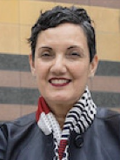
Rosa Arriaga, PhD
Associate Professor
Georgia Tech School of Interactive Computing
Dr. Rosa Arriaga is a Human Computer Interaction (HCI) researcher in the School of Interactive Computing at Georgia Tech. Her current research interests are in the area of chronic ca
re management and mental health. She designs and deploys mHealth systems that address gaps in chronic care and mental health management. The computational systems she designs fosters engagement, facilitates continuity of care, promotes patient self-advocacy, and mediates communication between patient and healthcare providers.

Patti E. Landerfelt DNP, APRN, CRNA, CCRN, CEN
Senior Instructor
Emory University Nell Hodgson Woodruff School of Nursing
Dr. Patti Landerfelt is an assistant professor at the Nell Hodgson Woodruff School of Nursing. Her educational background includes a BSN and DNP from Emory University and a Master of Nursing from the U.S. Army Graduate Program in Anesthesia Nursing. She served America’s Heroes at the Atlanta VA Medical Center as well as other members of the metro Atlanta community as an ER nurse, critical care nurse, IV team nurse, and nurse anesthetist for 26 years. She currently teaches in the pre-licensure nursing program at Emory’s School of Nursing. She coordinates Pathophysiology and Adult/Older Adult Health Nursing didactic courses for BSN and MN students. Her research focuses on nursing leadership and the effects of leadership on hospital acquired infections as well as nursing workload and burnout.
Dr. Landerfelt’s first career was teaching in elementary public-school classrooms across the U.S. She has a Master of Music with an emphasis in Orff-Schulwerk, a pedagogical philosophy of teaching music to children. She currently incorporates Carl Orff’s philosophy of teaching along with David Kolb’s 4 stage experiential learning model into her andragogical approach to nursing education. Dr. Landerfelt strives to provide a holistic learning experience that fosters curiosity, generates hope, enables success, and creates a sense of wonder and joy in learning the most trusted profession.

Roy L. Simpson, DNP, RN, FAAN, DPNAP, FACMI
Professor, Clinical Track, Assi
stant Dean for Technology Management
Emory University Nell Hodgson Woodruff School of Nursing
Dr. Roy L. Simpson is a distinguished leader in nursing informatics and executive nursing leadership, with over 45 years of dedicated experience in transforming healthcare through innovation. His work spans academia, corporate sectors, and multihospital systems, focusing on big data analytics, Internet of Things (IoT) applications in healthcare, workforce development, and informatics-driven decision-making to improve patient outcomes and nursing efficiency. In corporate leadership, he pioneered the HBOC Nurse Scholars Program (now McKesson), significantly advancing education in health informatics for nursing executives during the 1980s. This initiative helped disseminate over 100 scholars in nursing informatics faculty globally, fostering widespread adoption of this emerging specialty. In the 1970’s with HCA funding, Dr. Simpson created with Werley and Lang, The Nursing Minimum Data Set. Additionally, he has chaired expert panels for prominent organizations such as the American Academy of Nursing, AONL, and HIMSS, influencing policies on informatics, vendor collaboration, and technology integration in nursing practice.
Tags
Navigating the Future Together: The Role of Academic-Practice Partnerships
April 15, 2025
2:00 PM - 3:00 PM (ET)
Webinar Details
This webinar will explore the value of academic-practice partnerships (APPs). Speakers from the AACN/AONL Academic-Practice Advisory Committee will discuss the importance of close collaboration between groups to implement the Essentials and move to competency-based education. The webinar will highlight the successful 17-year partnership between the University of Maryland School of Nursing (UMSON) and the University of Maryland Medical System (UMMS). The webinar will share practical insights that can be leveraged by academic and healthcare organizations to begin, expand, or sustain their own APP. This partnership will highlight lessons learned and future goals with implementation of APP related strategic initiatives focused on practice, academia, and research in alignment with the Essentials.
Outcomes:
By the end of this session, viewers will be able to:
- Attendees will be able to articulate the importance and benefits of academic-practice partnerships, particularly in enhancing nursing education, practice, and research.
- Attendees will gain practical insights into the origins, development, and sustainability of academic-practice partnerships.
- Attendees will learn about various collaborative, strategic initiatives to improve patient care, workforce challenges, academia, and research.
Note: Recording of the webinar will be available soon after the webinar airs. Visit AACN's On-Demand Webinars to watch.
Speakers
Speakers
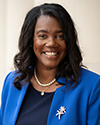
Yolanda Ogbolu, PhD, FNAP, FAAN
Bill and Joanne Conway Dean and Professor
University of Maryland Baltimore School of Nursing
Yolanda Ogbolu is the Bill and Joanne Conway Dean and Professor at the University of Maryland Baltimore School of Nursing. Over the past 14 years at UMB, she has held various leadership roles, including Chair of Partnerships, Professional Education and Practice, Director of Global Health and Co-director of The Center for Health Equity and Outcomes Research and the Global Learning to Advance Health Equity Network. Ogbolu's research and scholarship at UMB have focused on advancing health equity and nurse capacity both locally and globally. Her projects focus on health equity, including improving culturally and linguistically appropriate care in hospitals, addressing social determinants of health, hypertension and social isolation in marginalized communities. She has secured over $17 million in funding from various agencies and foundations. Currently, she leads a national network to advance global learning for health equity under a grant from the Robert Wood Johnson Foundation and a community grant to reduce cardiovascular health disparities in Baltimore.
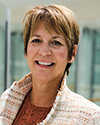
Karen Doyle, DNP, MBA, RN, NEA-BC, FAAN
Senior Vice President of Patient Care Services and Chief Nursing Officer
University of Maryland Medical Center
Karen Doyle is Senior Vice President of Patient Care Services and Chief Nursing Officer (CNO) at the University of Maryland Medical Center (UMMC). With more than 35 years of nursing experience, she has served in a variety of executive roles in care management, patient experience, trauma and emergency nursing, and women’s and surgical services. As CNO, Dr. Doyle helps oversee nursing practice, patient outcomes, and research at UMMC’s Downtown and Midtown cam puses. She was previously Senior Vice President of Nursing and Operations at the R Adams Cowley Shock Trauma Center, Maryland’s Primary Adult Resource Center, which serves more than 7,500 critically ill and severely injured patients annually. Dr. Doyle has been instrumental in the success of several key initiatives at UMMC, including the expansion of trauma, critical care, and emergency services; the relocation and building of a 250-bed acute care hospital; and the development of a surgery, obstetric, and gynecologic hospitalist program. She also led UMMC’s COVID-19 response and vaccine rollout. In 2024, UMMC earned its fourth consecutive Magnet designation under her leadership.

Peggy Norton-Rosko, DNP, RN, NEA-BC
Chief Nurse Executive
University of Maryland Medical System
Peggy Norton-Rosko serves as the University of Maryland Medical System’s leader for nursing practice, standards of care, nursing professional development and the partnership with schools of nursing. She also supports UMMS's strategic planning, nursing workforce development, continuous clinical improvement initiatives and the organization's High Reliability journey.Prior to her current role, Dr. Norton-Rosko served as the regional chief nursing officer for Trinity Health's Illinois and Indiana region. She has also served as the chief nursing officer for George Washington University Hospital in Washington, DC. Her clinical background includes many years as an advanced practice nurse working with cardiovascular surgery patients and also as a critical care nurse. She has served in affiliate and adjunct faculty positions for several schools of nursing. Dr. Norton-Rosko earned a BS in nursing from Northern Illinois University, a MS in nursing from Loyola University of Chicago and a DNP from Chamberlain University. She was named to the Johnson and Johnson Nurse Innovation Fellowship for 2023-2024. Dr. Norton-Rosko is committed to supporting a professional nursing practice environment that supports excellent patient care by advocating for nurses to engage in professional governance to shape their practice and improve patient outcomes.
Tags
AI in Nursing Education: Bridging Innovation, Competency, and Practice
March 19, 2025
2:00 PM - 3:00 PM (ET)
Webinar Details
Artificial intelligence (AI) is no longer a futuristic concept, it is transforming how we teach, learn, and practice nursing. This session will explore how AI aligns with Domain 8 of the AACN Essentials, focusing on informatics and healthcare technologies, while also demonstrating its practical applications in teaching, learning, and clinical practice.
Outcomes:
The learner will be able to:
- Examine the role of AI in nursing education and its alignment with Domain 8: Informatics and Healthcare Technologies of the AACN Essentials.
- Explore AI-driven tools that enhance competency-based learning, clinical simulations, and decision support in nursing education.
- Evaluate ethical considerations and best practices for integrating AI responsibly into nursing curricula while maintaining humanistic and evidence-based teaching approaches.
Note: Recording of the webinar will be available soon after the webinar airs. Visit AACN's On-Demand Webinars to watch.
Speakers
Speakers
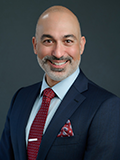
Stephen A. Ferrara, DNP, FNP, FAANP, FAAN
Associate Dean, AI & AANP/President
Columbia University School of Nursing
Dr. Stephen A. Ferrara is a Nurse Practitioner with over 20 years of clinical experience. He currently serves as the president of the American Association of Nurse Practitioners and is the inaugural associate dean of artificial intelligence and professor at the Columbia University School of Nursing. Dr. Ferrara has held leadership roles in various healthcare organizations and has a diverse clinical background including college, correctional, retail, men's, and occupational health. He is also the Editor-in-Chief of the Journal of Doctoral Nursing Practice.
During his tenure as the executive director of the Nurse Practitioner Association New York State, Dr. Ferrara played a key role in eliminating barriers to NP practice, culminating in the passage of the landmark NP Modernization Act in 2022. This law removed the requirement for collaborative agreements between experienced NPs and physicians, granting full practice authority in New York State.
Dr. Ferrara's commitment to quality care is demonstrated through his passion for health care technology and his efforts to integrate evidence-based practice into daily healthcare. His leadership has been recognized with several prestigious awards, including the American Association of Nurse Practitioners' NY State Award for Clinical Excellence in June 2012, and his induction as a fellow of the American Association of Nurse Practitioners, National Academies of Practice, and the American Academy of Nursing.
Tags
Unifying Caring Science and the AACN Essentials
October 02, 2024
2:00 PM - 3:00 PM (ET)
Webinar Details
This webinar aims to inform nursing education by offering an expanded perspective on the AACN Essentials through the integrative lens of Caring Science and the ANA Definition of Nursing. Building on Watson's seminal work in Caring Science and Human Caring Theory, this webinar will demonstrate how the 10 Caritas Processes® serve as a discipline-specific nursing paradigm that incorporates and transcends competencies.
Caring Science provides an ethical, humanistic, and heart-centered educational guide for the future of nursing. The webinar will include exemplars of academic-practice partnerships in Caring Science, that unify, redefine, and advance both nursing education and practice. It will demonstrate how this approach revolutionizes nursing curricula, creating a more holistic and compassionate foundation for the discipline. Furthermore, the presentation will champion a visionary partnership model between healthcare establishments and academic institutions, integrating the AACN Essentials within the broader context of Caring Science and the nursing discipline. This integration aims to elevate the standards of nursing education, preparing a new generation of nurses equipped with competence grounded in the discipline, and providing a deeper understanding of the caring, healing, and compassionate aspects of the profession.
Objectives:
- Critique the Caring Science Nursing paradigm in relation to Medical Science and the ANA's definition of Nursing, highlighting key differences and connections.
- Discover the integration of AACN Essentials and Caring Science in nursing education, examining their roles in curriculum development, and identifying common educational strategies across nursing schools.
- Explore practical applications of Caring Science and the 10 Caritas Processes® in healthcare institutions and nursing education, including their alignment with AACN Essentials
Note: Recording of the webinar will be available soon after the webinar airs. Visit AACN's On-Demand Webinars to watch .
Speakers
Speakers
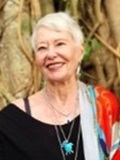
Jean Watson, PhD, RN, AHN-BC, FAAN, LL
Founder –Director
Watson Caring Science Institute
Dr. Jean Watson is known around the world for her Theory of Human Caring and advancement of Caring Science as disciplinary context for Nursing’s future. She is the Founder of the Non-profit, Watson Caring Science Institute and Distinguished Professor Dean Emerita University of Colorado Denver. She is the author, co-author, or editor of over 30 books on Caring Science and Unitary Caring. Her latest book is titled Metaphysics of Unitary Caring Science. A Cosmology of Love, (2025 pub. by Springer). Her work is used globally, promoting academic and clinical partnerships toward theory-guided caring science curriculum and professional Caritas Practice, Research, and Leadership. Watson is the recipient of numerous national and international awards and honors including 15 Honorary Doctorates; she is designated as a Living Legend by the American Academy of Nursing, its highest honor. View full bio.

Sara Horton-Deutsch, PhD, RN, FAAN, ANEF, SGAHN
University of San Francisco
Director of USF/Kaiser Permanente Partnership and Faculty Associate
Watson Caring Science Institute
Dr. Sarah Horton-Deutsch has led in academic and practice settings for over 30 years as an advanced practice psychiatric/mental health nurse, teacher/practitioner, consultant, program director, caring science endowed chair, coach, and academic/practice partnership director. In 2022, she was inducted into the Global American Holistic Nursing. She has contributed to evidence-informed knowledge development throughout her academic and practice career to ensure compassionate, safe, and quality care. As a reflective leader, she focuses on inward development to positively influence change. She has co-authored several books on Reflective Practice, Caring Science, and Caritas Coaching. She i s a Caritas Coach & Leader, Reiki Practitioner, and Healing Circle Facilitator. Through her journey, she has learned the necessity of connecting to one’s inner sources of wisdom, power, and healing, as well as the arts and humanities that once defined the discipline of nursing. She is passionate about facilitating critical, deep, and authentic connections that support regeneration, renewal, and the profession’s evolution. Her latest books, Visionary Leadership in Healthcare (2022) and Reflective Practice: Reimagining Ourselves, Reimagining Nursing (2024), were published through SIGMA, the former winning an AJN 1st place book of the year award in Leadership. She is currently a champion for the ANCC Essentials within the USF School of Nursing and Health Professions. She is co-director of the Caritas Leadership Program for the Watson Caring Science Institute.

Danny G. Willis, DNS, RN, PMHCNS-BC, FAAN
Dean and Professor
University of Rhode Island College of Nursing
Dr. Danny G. Willis serves as Dean of the University of Rhode Island College of Nursing. He Caritas® Leader Faculty. In his 20-year academic career, he has served as Dean at Saint Louis University Valentine School of Nursing, Associate Dean for Academic Affairs at the University of Wisconsin-Madison School of Nursing, and Department Chair at Boston College, Connell School of Nursing. He is a Fellow of the American Academy of Nursing and has chaired the Expert Panel on Theory-Guided Practice and is a member of the Expert Panel on Violence. His program of research and scholarship primarily focuses on wellbeing and healing in the aftermath of traumatic experiences. His work has been recognized with many awards, including the Eastern Nursing Research Society "Rising Star" Award, American Psychiatric Nurses Association Nancy Valentine "Leadership" Award, and R-level research funding as Principal Investigator from the National Institutes of Health (NIH). He has mentored undergraduate, masters, and PhD students from nursing, social work, child and human development, and counseling psychology. Dr. Willis has published widely in nursing and other health- related journals on qualitative research methods, foundations of the discipline, child maltreatment, the aftermath of hate crime, school children being bullied, child witness to violence, mental health, sleep, and healing. He has served as chair of the American Psychiatric Nursing Association (APNA) Research Council and currently co-chairs the Eastern Nursing Research Society (ENRS) Qualitative Research Interest Group. His publication explicating a central unifying focus for the discipline of nursing ‘facilitating humanization, meaning, choice, quality of life, and healing in living and dying,” published in Advances in Nursing Science, garnered national and international recognition for its relevance to nursing. Dr. Willis enthusiastically shares his work nationally and internationally with invited papers and presentations in the United States, Chile, Colombia, Ireland, England, Portugal, and Japan.
Tags
Publishing Part 7: Publishing a Research Report: Strategies for Success
May 23, 2024
2:00 PM - 3:00 PM (ET)
Webinar Details
This webinar focuses on strategies to write a research report suitable for publication in a professional journal. Criteria for writing each component of a research report is addressed.
- Describe the components of a publishable research report.
- Explain approaches unique to clinical research articles versus educational research articles.
- Analyze strategies that promote a successful publication.
This webinar is part of a six-part series addressing how to publish in professional journals successfully. For additional webinars in this series, see the links below.
Publishing Part 1: Getting Started with a Topic and Selected Journal
Publishing Part 2: Deciding Authorship, Overcoming Writer’s Block, and Selecting Format
Publishing Part 3: Writing the First Draft and Completing the Final Version
Publishing Part 4: Responding to the Editor’s Decision
Publishing Part 5: Helping Grad Students Turn a Paper into a Publishable Manuscript
Publishing Part 6: The Key to a Successful Manuscript Review
Publishing Part 7: Publishing a Research Report: Strategies for Success
Note: Recording of the webinar will be available soon after the webinar airs. Visit AACN's On-Demand Webinars to watch.
Speakers
Speakers
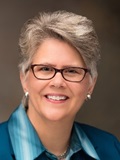
Patricia Morton, PhD, RN, ACNP-BC, FAAN
Editor of the Journal of Professional Nursing
Dean Emeritus
University of Utah
Patricia Gonce Morton is Dean Emeritus, University of Utah College of Nursing. She served as Dean, Professor and held the Louis Peery Endowed Presidential Chair at the University of Utah College of Nursing. Prior to her deanship at the University of Utah, Dr. Morton served in various administrative positions at the University of Maryland School of Nursing. An educator and scholar who is known for her work in critical care nursing and nursing education, Dr. Morton has authored multiple editions of three textbooks, numerous book chapters, and over 60 journal articles. She has served on the editorial board of eight nursing journals and for seven years was the editor of the journal AACN Clinical Issues: Advanced Practice in Acute and Critical Care sponsored by the American Association of Critical-Care Nurses. Currently, Dr. Morton has been the editor of the Journal of Professional Nursing sponsored by the American Association of Colleges of Nursing since 2013. Dr. Morton is a certified acute care nurse practitioner. In recognition of her contributions to nursing and healthcare, Dr. Morton was inducted as a fellow in the American Academy of Nursing in 1999.